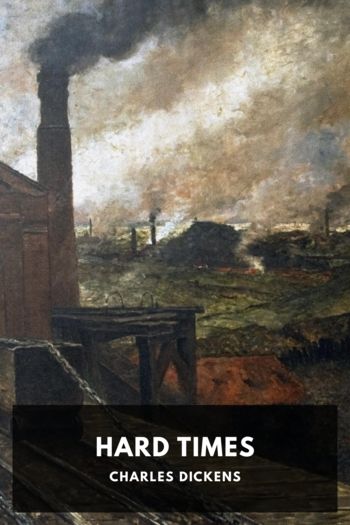Millennium Holland, Tom (read dune .TXT) 📖

Book online «Millennium Holland, Tom (read dune .TXT) 📖». Author Holland, Tom
‘Ruined, ruined,’ Gerbert wailed. ‘What hope can there possibly be?’ But he did not despair for long. As Theophanu, having buried her husband in St Peter’s, hurried northwards to beard the usurper in East Francia, Gerbert was already hard at work, writing to the princes and bishops of the Reich, stiffening them in their loyalty to their rightful king. So effective was his campaign that by the time Theophanu crossed the Alps, in May, Henry the Quarreller found that all his supporters had melted away. A month later, sulkily, he surrendered the infant Otto to his mother, and retired in high dudgeon to Bavaria.
Theophanu, ‘that ever august empress, always to be loved, always to be cherished’, was appointed regent on behalf of her son. In this role, she proved formidably effective. ‘Preserving her son’s rulership with a manly watchfulness, she was always benevolent to the just, but terrified and conquered rebels.’[]Three years after the crisis of984, she even obliged a fuming Henry, along with three other German dukes, to serve as waiters at Otto’s table, in full view of the Reich’s nobility, who had all gathered at court for the feast of Easter. Although she died in 991, while her son was still legally a minor, Theophanu had successfully secured the empire for Otto III. In September 994, he was presented with the arms of a warrior, and officially came of age. One year later, and he was leading his men in that traditional rite of passage for a Saxon king, a campaign against the Wends. By 996, the year of his sixteenth birthday, all that remained was to be crowned emperor – and so it was, that very spring, that Otto III announced his departure for Rome.
And all this Gerbert had followed with the keenest interest. Although Theophanu, with the ingratitude that was an empress’s proper prerogative, had failed to reward his services with commensurate patronage, the great scholar had not stinted in his loyalty to her or to her son. Mathematician, astronomer and historian, Gerbert could hardly have been oblivious to the date that was approaching. ‘It seems’, he had pronounced sensationally back in 991, ‘that Antichrist is at hand.’ He knew as well – for he was a friend of Adso, and owned a copy of the famous letter to Gerberga – that the end of days would lie presaged by a great convulsion in the affairs of the Roman Empire. And now, four years before the one-thousandth anniversary of the birth of Christ, a prince with the blood of both West and East in his veins, of the twin halves of the ancient empire, so long divided, to the scandal of Christians everywhere and to the profit of its foes, was travelling to Rome.
Well might Gerbert have dreamed of meeting him: for he appreciated better than anyone that it was Otto’s destiny to rule in interesting times.
The Last Roman Emperor
Pilgrims heading southwards to worship at the tomb of St Peter knew that what awaited them was a cityscape like no other in the Latin West. ‘O Rome,’ went the song, ‘noble Rome, mistress of the globe, there is nowhere that can rival you, most excellent of cities!’ Even visitors from the great capitals of Islam might find themselves stupefied: one Muslim merchant, approaching Rome and seeing in the distance the city’s churches, mistook the green-grey lead of their roofs for the waves of a sea. On Christians from the North the impact was overpowering. Nothing in their own muddy homelands could have prepared them for the spectacle of the ancient capital of their faith. That a city might boast a population numbering some twenty-five thousand souls; that her walls might stretch for twelve miles; that these walls might contain a seemingly infinite number of shrines: all this had to be seen to be believed. Otto, as he arrived in Rome, would have felt himself entering a dreamlike realm of wonders.
And into his destiny as well. ‘Rome, head of the world, and mistress of cities, alone makes emperors of kings.’ So the peoples of the North had long acknowledged. ‘Cherishing as she does in her heart the prince of saints, it is she who has the right, if she so wishes it, to enthrone a prince over all the lands of the earth.’ The irony of this – that it was the very blood spilled by the pagan Romans that had preserved their city’s title to the rule of the world – never ceased to delight the devout. The victory of St Peter over those who had martyred him was manifest wherever one looked in Rome. Monuments that had once proclaimed her Babylon the Great, ‘the devil’s own city’, were leprous with decay. Squalid hovels crowded the squares of forgotten emperors; around the Colosseum, which in ancient days had been ‘stained purple with saintly blood’, there now hung the haze of malarial swamps and the fumes of corpse-pits; on the Palatine Hill, nothing remained but rubble of the palace of the Caesars. Debris, as though the breath of an angel had swept the scene, lay everywhere; and where the debris ended open fields began.
Yet Rome endured, and more than endured: for though she was capital of the dead, yet it was not the shades of pagan emperors, howling to see cattle wander where once their chariots had rolled, whose presence animated the spectacle of her desolation, but rather the martyrs, whose holy bones were the city’s most priceless





Comments (0)